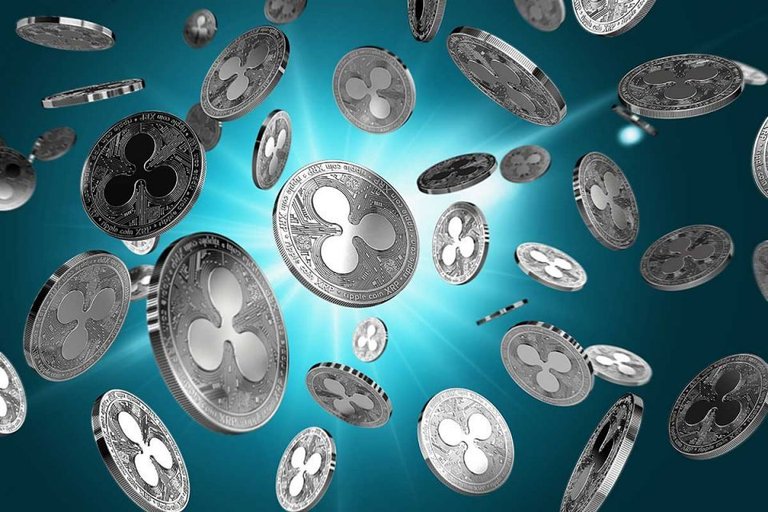
Ripple is the latest in a retinue of challengers to bitcoin’s dominance, being by far the most commercially successful of any blockchain company.
This is largely thanks to its transformative offering to financial service institutions.
Despite this, many people inside and outside the cryptocurrency community have been left asking what the company Ripple actually is. What is fuelling the tremendous growth to a $151bn market capitalisation from nowhere, as recently as 2013?
But why? Explanation lies in the fundamentals of the business: it provides a fast, cheap and scalable means of transaction.
Much like bitcoin, ripple provides a borderless payment mechanism for capital to flow from one party to another without the need for a financial intermediary.
Traditional global intermediary systems like Swift slow down transaction processes to a snail’s pace, usually forcing one or both parties involved in transactions to undergo expensive and time-consuming compliance processes that take days instead of seconds.
In an age of high-speed internet and instant telecommunications, such delays seem barely explicable, let alone permissible in the hyper-competitive global payments business.
Ripple’s enterprise solution, RippleNet, allows financial services institutions – and by proxy their customers – to transfer assets seamlessly to one another, reducing the time taken to transact from days to fractions of a second, for a sliver of the cost.
Ripple also has significantly greater capacity than close relative bitcoin, managing over 2,500 transactions per second, compared to bitcoin’s lethargic five per second. Its transaction fees are noticeably smaller too, pricing in at 1/1600 of costly bitcoin transactions.
In less than a month, ripple dethroned second-placing ethereum to challenge bitcoin as supreme leader of the digital asset universe, to the shock of those who monitor the digital marketplace. Its success can be linked back to the underlying RippleNet system, which has proven tantalising not just to investors, but to the entire payments industry.
Major credit card companies, including American Express, signed up in droves to ripple’s highspeed digital payment rail. These new clients of RippleNet demonstrate its interoperability with existing banking infrastructure. As its client book grows, Ripple bears the crown for being the largest of any blockchain business, boasting 250 staff and counting.
There is one catch to this apparently perfect alternative to bitcoin – banks don’t need a cryptocurrency to conduct transactions. XRP is, in fact, a digital token mostly owned by Ripple Labs Inc.
Transaction participants don’t need XRP to make a transaction, and most large financial services institutions will likely never use digital XRP tokens. It is, after all, just a token.
Ripple Labs has created a protocol that financial institutions can trade any asset on. XRP, however, remains an entirely separate entity and seemingly exists as a speculative tool in the highly speculative cryptocurrency market.
Each new customer announced by parent Ripple Labs drives XRP’s price further upward, and has ensured steady investor capital flows into the cryptocurrency.
The only problem is XRP prices ought to bear no semblance to companies using RippleNet, as they are separate entities under one roof. In the wild west of cryptocurrencies, this important detail is overlooked.
December saw XRP appreciate over 1,200 per cent off the back of these announcements, augmented by the rumour that the digital currency would be added to Coinbase, the popular application that allows retail investors to trade their real-world cash for cryptocurrency.
But this rumour failed to turn into reality, and the price tanked. The old adage applies here – buy the rumour, sell the news.
As a long-term investment, there is a huge risk that some XRP investors realise their tokens have little utility and begin dumping the currency, cashing in desired profits and leaving those less fortunate holding the bag.
Any player in this market ought to remain mindful. Ripple is a disruptive payments company which happens to have a cryptocurrency. When compared to its cryptographic cousins, it was the first to build a viable enterprise offering specifically for the world’s financial services institutions.
This is demonstrative of the commercial ingenuity and entrepreneurship of Ripple Labs’ founders.
Those same founders can rest much easier than other cryptocurrency creators in the knowledge that should cryptocurrency markets rise or fall, they will at least have a business left should the bubble burst.
Im also looking forward to see what will happen to Ripple in the future.
I know that XRP has not the best standing in the community by beeing a centralized Coin but thats also an opportunity to work with big investors together and bringing the whole market higher.
yea.... but speaking for myself, I got into Cryptos to get AWAY from the banksters. I refuse to buy Ripple because it's the Banksters coin. Call me silly and old fashioned, but I'll stick to my little known coins, that have a value in what they stand for :D
d
Or the flip side the banks will always win :)
Hi! I am a robot. I just upvoted you! I found similar content that readers might be interested in:
http://www.cityam.com/279838/making-waves-why-ripple-cryptocurrency-watch
I never thought ripple would make it to the top 10 so soon so i'm really interested to see how things look december of this year! Good write here, thanks